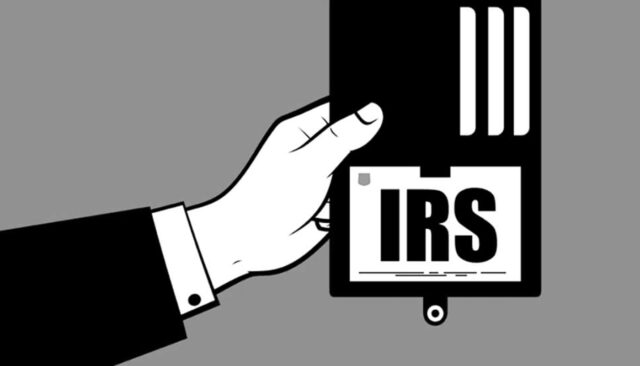
Keeping an accurate mileage log is essential for anyone using a vehicle for business, medical, moving, or charitable purposes.
The IRS scrutinizes these logs during audits, so it’s crucial to maintain detailed records. This guide covers best practices and tips for keeping a mileage log that stands up to IRS scrutiny.
Understanding the Importance of a Mileage Log
A mileage log is more than a formality; it’s a critical document that can save you from costly tax mistakes.
The IRS demands detailed records to validate your deductions. Inadequate logs can lead to denied deductions or penalties. Thus, understanding the stakes is the first step in maintaining a robust log.
Mileage Tracking Apps as Modern Solution
![]()
Gone are the days of manual logbooks. Today, a mileage tracking app such as the one from Mileage Wise, offers a convenient and efficient way to record your trips.
These apps automatically track your drives, calculate distances, and store your trips in cloud-based logs. They ensure accuracy, which is paramount in an IRS audit. When choosing an app, consider features like GPS tracking, automatic trip detection, and easy report generation.
Setting Up Your Log
A proper mileage tracker should include the date of the trip, the trip’s purpose, the starting point and destination, and the miles driven. Be as descriptive as possible.
For example, instead of writing “client meeting,” specify the client’s name and the meeting’s nature. This level of detail adds credibility to your log.
Consistency is Key
Consistency in maintaining your log is non-negotiable. Record every trip related to your deductible activities.
Even small, seemingly insignificant trips can add up to substantial deductions over time. Regularly updating your log prevents the daunting task of reconstructing records later and reduces the risk of forgetting important trips.
Understanding IRS Requirements

Familiarize yourself with the IRS requirements for mileage deductions. The IRS allows deductions for business, medical or moving purposes, and charitable work.
Each category has specific rules and rates, which the IRS updates annually. Staying informed ensures your log aligns with current standards.
Organizing Your Records
Organization is critical. Whether you use an app or a manual log, keep your records orderly. Organize them by date and category.
This organization makes it easier to retrieve specific information during an audit and demonstrates your commitment to accurate record-keeping.
Cross-Checking for Accuracy
Periodically cross-check your log entries for accuracy. Compare them against calendars, appointment books, and other records.
This practice helps identify and correct discrepancies in your log, ensuring it remains accurate and reliable.
Preparing for an Audit

In case of an IRS audit, your mileage tracker is your first line of defense. Be prepared to provide additional documentation, like repair receipts or appointment confirmations, that corroborate your log entries.
A well-maintained and detailed log gives you confidence and poise during an audit, showing that you take tax compliance seriously.
Staying Informed and Compliant
Tax laws and deduction rates change. Stay informed about these changes to ensure your log remains compliant.
Consult tax professionals or IRS publications for updates. Being proactive about compliance shows your dedication to maintaining an accurate and honest mileage log.
The Impact of Inaccurate Logs
Understand the consequences of an inaccurate or incomplete log. Inaccuracies can lead to denied deductions, additional taxes, penalties, or interest.
The financial impact can be significant, making the effort to maintain an accurate log well worth it.
Leveraging Technology for Efficiency

In addition to mileage-tracking apps, other technological tools can enhance your record-keeping.
Cloud storage, for example, offers a secure and accessible way to store your logs and related documents. Leveraging technology streamlines the process and provides peace of mind.
Best Practices for Manual Logs
For those preferring manual logs or needing a backup to digital records, best practices are crucial. Use a dedicated notebook or logbook for this purpose. Write clearly and in ink to prevent alterations.
Date each entry and include the same level of detail as you would in a digital log. Regularly transferring these details to a digital format can serve as a backup and make it easier to generate reports for tax preparation.
Regular Reviews and Updates
Review your mileage tracker regularly, ideally weekly or monthly. This habit ensures that your log is up-to-date and accurate.
It also helps in identifying any missing information or errors promptly. Regular reviews make the task less burdensome than if left for the end of the year.
Documenting the Purpose of Each Trip

Elaborating on the purpose of each trip in your log is crucial. Vague descriptions can raise red flags during an audit.
Detail the business purpose, the nature of the charitable work, or the reason for the medical or moving trip. This clarity supports the legitimacy of your deductions.
Retaining Supporting Documentation
Besides your mileage log, retain all relevant supporting documentation. This includes receipts, invoices, business cards, or any other evidence that supports the purpose of your trips.
Keeping these documents organized and readily accessible bolsters the credibility of your mileage tracker.
The Role of Professional Advice
Seeking professional advice, especially if your travel for business purposes is extensive, can be a wise decision.
Tax professionals can provide guidance specific to your situation and help you understand the nuances of tax laws related to vehicle expenses.
Solidifying Your Financial Foundation with Meticulous Record-Keeping

Ultimately, meticulous record-keeping in maintaining a mileage log is not merely a regulatory obligation, it’s a cornerstone of solid financial management for individuals and businesses alike.
It’s about laying a foundation of integrity and accuracy in your financial practices. This discipline extends beyond mere compliance; it instills confidence in your financial decisions and prepares you for the scrutiny of audits.
End Note
Maintaining an accurate and detailed mileage tracker requires diligence and attention to detail. The effort is worthwhile, considering the potential financial benefits and the peace of mind during an IRS audit.
By incorporating these tips and best practices into your routine, you can ensure that your mileage log is a robust and reliable document, fully compliant with IRS requirements.









